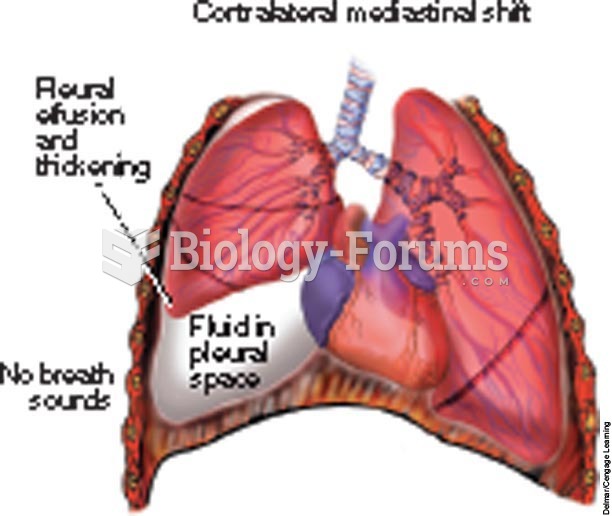|
|
|
Vaccines prevent between 2.5 and 4 million deaths every year.
The most common treatment options for addiction include psychotherapy, support groups, and individual counseling.
According to the American College of Allergy, Asthma & Immunology, more than 50 million Americans have some kind of food allergy. Food allergies affect between 4 and 6% of children, and 4% of adults, according to the CDC. The most common food allergies include shellfish, peanuts, walnuts, fish, eggs, milk, and soy.
All patients with hyperparathyroidism will develop osteoporosis. The parathyroid glands maintain blood calcium within the normal range. All patients with this disease will continue to lose calcium from their bones every day, and there is no way to prevent the development of osteoporosis as a result.
There are over 65,000 known species of protozoa. About 10,000 species are parasitic.







